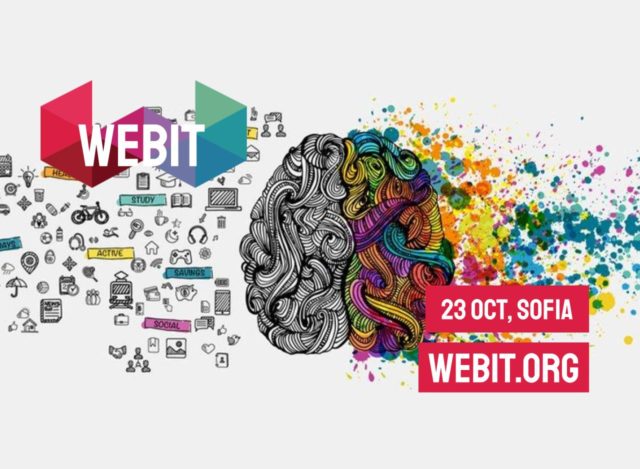Mental health, once a topic shrouded in stigma, is now at the forefront of global health discussions. As awareness grows, the mental health landscape is undergoing transformative changes, driven by advances in technology, changing societal attitudes, and a growing recognition of its importance. The future of mental health care promises a more personalized, accessible, and effective approach to addressing psychological well-being. Here’s how the landscape is evolving and what we can expect in the coming years.
1. Technology-Driven Mental Health Solutions
The rise of technology is revolutionizing mental health care. Digital tools, such as mobile apps, teletherapy platforms, and artificial intelligence (AI), are making mental health services more accessible than ever. These innovations are helping break down traditional barriers to care, such as geographic limitations and long waiting times, while offering new ways for individuals to manage their mental well-being.
Mobile apps like Calm and Headspace are popularizing mindfulness and meditation practices, while therapy apps such as BetterHelp and Talkspace provide access to licensed professionals from the comfort of home. AI-driven chatbots like Woebot are offering 24/7 mental health support, using cognitive-behavioral therapy (CBT) techniques to assist users in managing stress, anxiety, and depression.
In the future, AI is expected to play a more significant role in mental health care by analyzing data to predict mental health conditions and personalize treatment plans. This could lead to earlier diagnosis and intervention, potentially preventing the escalation of mental health issues.
2. Personalized Mental Health Care
The future of mental health will see a shift toward more personalized treatment options, driven by advancements in genetics, neuroscience, and data analytics. Researchers are increasingly understanding that mental health conditions like depression, anxiety, and bipolar disorder are not one-size-fits-all. As a result, treatments will be tailored to each individual’s unique genetic makeup, brain chemistry, and environmental factors.
Pharmacogenetics, the study of how genes affect a person’s response to drugs, is a growing field that will allow clinicians to prescribe medications based on an individual’s genetic profile. This means fewer side effects, faster-acting treatments, and overall more effective mental health care.
Additionally, breakthroughs in neuroimaging and brain mapping are helping scientists better understand the brain’s function in relation to mental health disorders. This knowledge is paving the way for more precise and personalized interventions, such as targeted brain stimulation therapies.
3. Teletherapy and Remote Care
Teletherapy—providing therapy services via video, phone, or online messaging—has seen a dramatic rise, particularly since the COVID-19 pandemic. This trend is expected to continue as remote care becomes a standard practice in the mental health field.
Teletherapy offers numerous benefits, including increased access to care for individuals in rural or underserved areas, greater flexibility in scheduling, and the ability to maintain continuity of care during times of crisis. As digital tools become more advanced, virtual reality (VR) and augmented reality (AR) are being explored as immersive therapy options, particularly for treating anxiety, PTSD, and phobias.
In the future, mental health professionals will likely integrate remote care with in-person services to provide a hybrid model of therapy, catering to patients’ diverse needs and preferences.
4. Workplace Mental Health
Mental health is increasingly being recognized as a critical component of workplace well-being. Employers are beginning to prioritize the mental health of their employees, understanding that a mentally healthy workforce is more productive, engaged, and resilient.
In response to this growing awareness, companies are implementing mental health programs that include counseling services, stress management workshops, and mental health days. Some are even incorporating mental health assessments into routine employee check-ins, allowing them to address potential issues before they escalate.
The future of mental health in the workplace will likely see a greater integration of mental health resources into employee benefits packages, as well as increased support for creating mentally healthy work environments. By fostering open conversations about mental health and reducing the stigma associated with seeking help, employers can play a crucial role in supporting the overall well-being of their teams.
5. Holistic Approaches to Mental Health
The future of mental health care is moving beyond traditional therapy and medication to embrace more holistic approaches. These include lifestyle interventions such as diet, exercise, sleep, and mindfulness practices, which are increasingly recognized as important contributors to mental well-being.
For example, nutrition and gut health are now being studied for their links to mental health, with research suggesting that a balanced diet rich in nutrients can help alleviate symptoms of depression and anxiety. Similarly, physical exercise is being widely prescribed as a form of mental health care, as it has been shown to reduce stress and improve mood.
Mindfulness and meditation practices are also being integrated into mainstream mental health care, with a growing body of evidence supporting their effectiveness in reducing symptoms of anxiety, depression, and stress. This trend is leading to a more holistic, preventive approach to mental health, emphasizing the importance of self-care and overall wellness.
6. Breaking the Stigma
While significant progress has been made in destigmatizing mental health, there is still much work to be done. However, the future looks promising, with younger generations leading the charge in openly discussing mental health issues and seeking help when needed.
Public figures, celebrities, and athletes speaking candidly about their own mental health struggles are helping to normalize these conversations, making it easier for others to seek support without fear of judgment. As the stigma continues to erode, mental health care will become more widely accepted and accessible.
Education will also play a key role in the future of mental health. Schools, workplaces, and communities will increasingly focus on mental health literacy, teaching people how to recognize early signs of mental illness, practice self-care, and seek professional help when necessary. The result will be a more informed and supportive society that prioritizes mental well-being.
7. Proactive and Preventive Mental Health Care
In the future, mental health care will shift from being reactive—treating issues once they arise—to being more proactive and preventive. This means identifying risk factors for mental health conditions early and intervening before they develop into more serious problems.
Technologies like wearable devices and mental health apps will enable individuals to monitor their mental well-being in real time, tracking mood, sleep patterns, and stress levels. This data can provide valuable insights into a person’s mental state and trigger early interventions, such as therapy or lifestyle changes.
Governments and health organizations are also increasingly investing in preventive mental health care initiatives, such as community mental health programs, school-based mental health education, and public awareness campaigns. By focusing on prevention, we can reduce the prevalence of mental health disorders and improve overall well-being.
Conclusion: A Brighter Future for Mental Health
The future of mental health care is one of innovation, accessibility, and personalized care. Technological advancements, shifting societal attitudes, and a growing focus on holistic well-being are reshaping the way we approach mental health, making it easier for people to seek help and manage their mental health proactively.
As we move forward, the integration of digital tools, personalized treatments, and preventive strategies will ensure that mental health care is more effective and inclusive than ever before. The path ahead promises a brighter future, where mental health is given the priority it deserves, empowering individuals to lead healthier, happier lives.

Join the discussion and learn from global leaders in the industry on the 23rd of October in Sofia. https://www.webit.org/festival-europe/index.php
#WebitFestival2024 is an exciting opportunity for industry leaders and experts to come together to discuss the latest trends and developments in the field of mental health in the future.
Check our ticket options here:
https://www.webit.org/festival-europe/tickets.php
